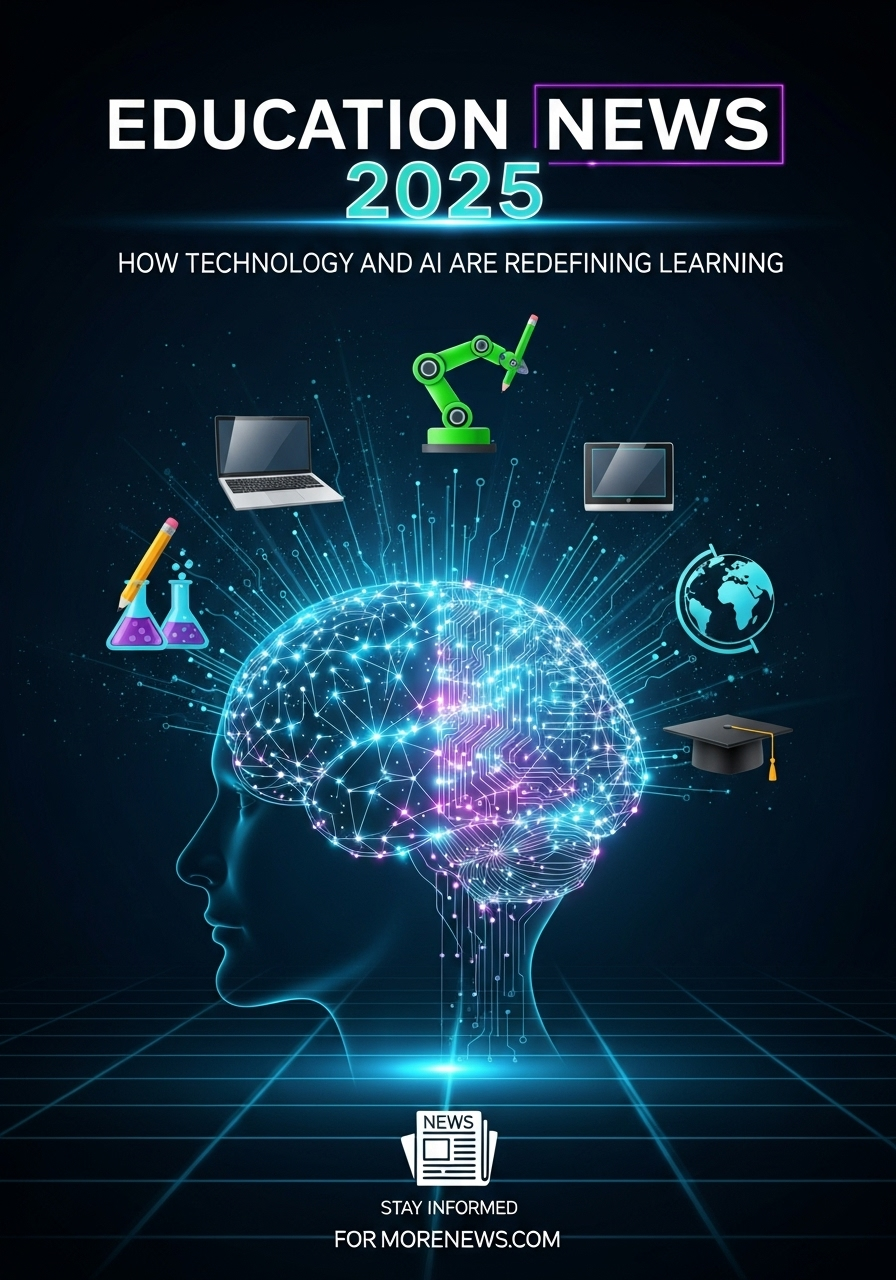Education News 2025: How Technology and AI Are Redefining Learning
Source Credit: ChatGPT. Image credit: Google AI Studio
Introduction
The education landscape is undergoing a historic transformation. In 2025, classrooms are no longer confined by walls or geography — they’re connected by technology, powered by Artificial Intelligence, and designed for personalized learning.
From AI tutors and smart classrooms to immersive virtual learning environments, this year marks a turning point in how the world learns, teaches, and measures success.
1. AI-Powered Personalized Learning
Artificial Intelligence has become the core engine of modern education.
AI-driven learning platforms now analyze student progress in real time, adapting lessons to each learner’s strengths, weaknesses, and pace.
Students no longer follow a “one-size-fits-all” curriculum — instead, they experience a customized educational journey guided by intelligent algorithms.
💡 Insight: Schools using adaptive AI systems report a 35% improvement in student engagement and comprehension rates.
2. Virtual Classrooms and Immersive Learning
The rise of virtual reality (VR) and augmented reality (AR) has brought subjects to life in ways never before possible.
Students can now conduct virtual science experiments, explore historical landmarks, or even practice surgery in a 3D simulation — all from home.
This immersive learning approach enhances retention and inspires curiosity.
🌍 Example: Universities are integrating VR-based field trips and interactive labs to make remote learning more engaging and realistic.
3. AI Tutors and Smart Assistants
AI tutors have become every student’s personal study partner.
Available 24/7, these intelligent assistants answer questions, explain complex topics, and even provide emotional support.
Instructors also benefit — AI helps grade assignments, track attendance, and generate insights on student performance.
🤖 Trend: EdTech companies like Khan Academy and Duolingo are integrating AI copilots to make learning more interactive and human-like.
4. Lifelong Learning and Micro-Credentials
The traditional college degree is evolving.
Professionals are turning to micro-courses, online certifications, and AI-curated learning paths to stay competitive in fast-changing industries.
This shift toward lifelong learning reflects a growing demand for continuous upskilling in technology, data, and digital literacy.
5. Data-Driven Education Policies
Education ministries and institutions are using AI analytics to inform decision-making — from resource allocation to performance evaluation.
By analyzing millions of data points, policymakers can identify learning gaps, predict outcomes, and design more effective educational strategies.
6. Challenges and Ethics in AI Education
Despite its benefits, AI in education raises important questions about privacy, bias, and digital equity.
Ensuring that all students — regardless of background — have access to quality technology remains a global priority.
Ethical use of AI data and transparency in algorithms are also key to building trust in this digital era of learning.

